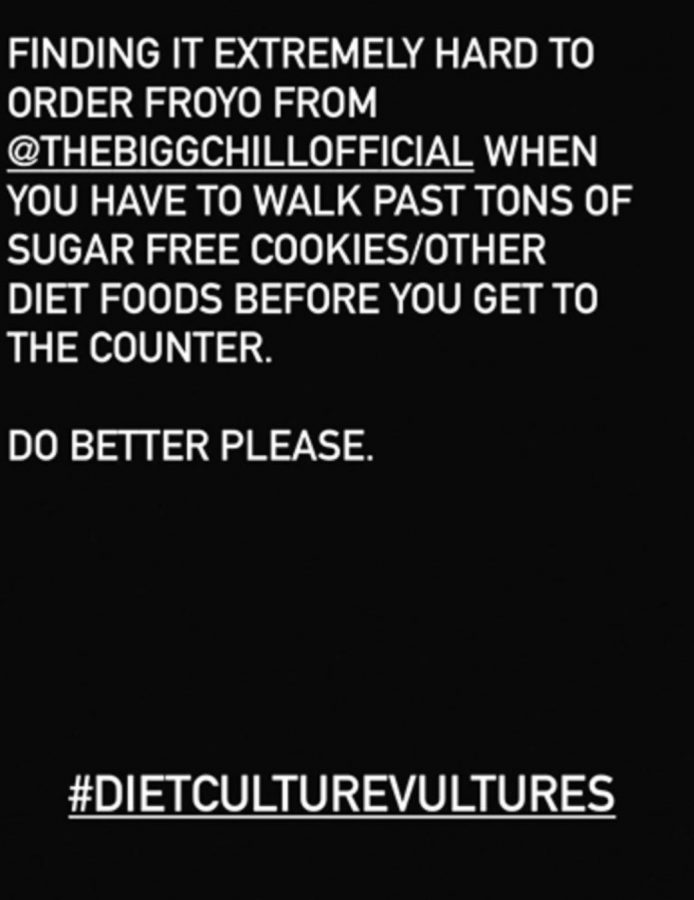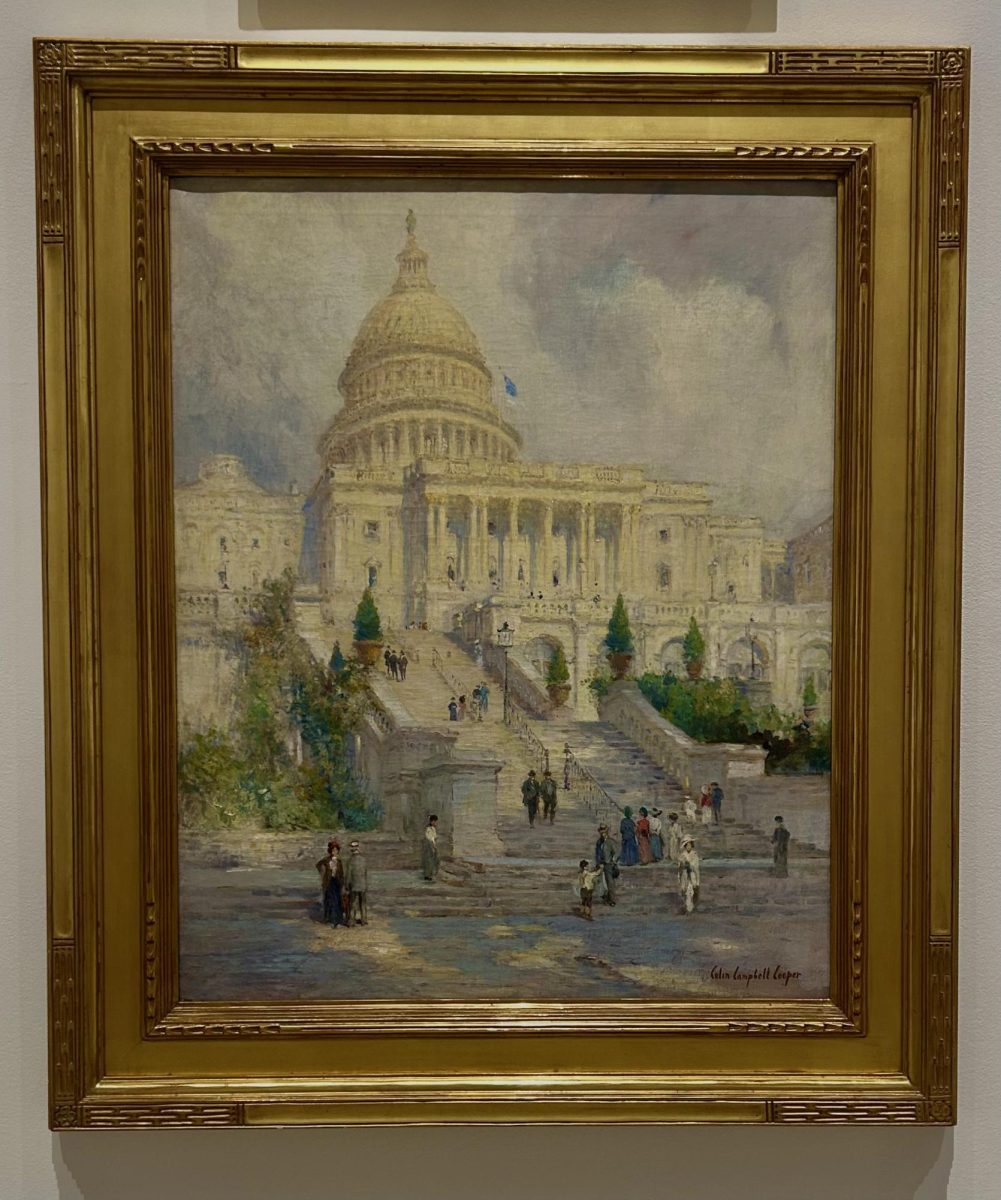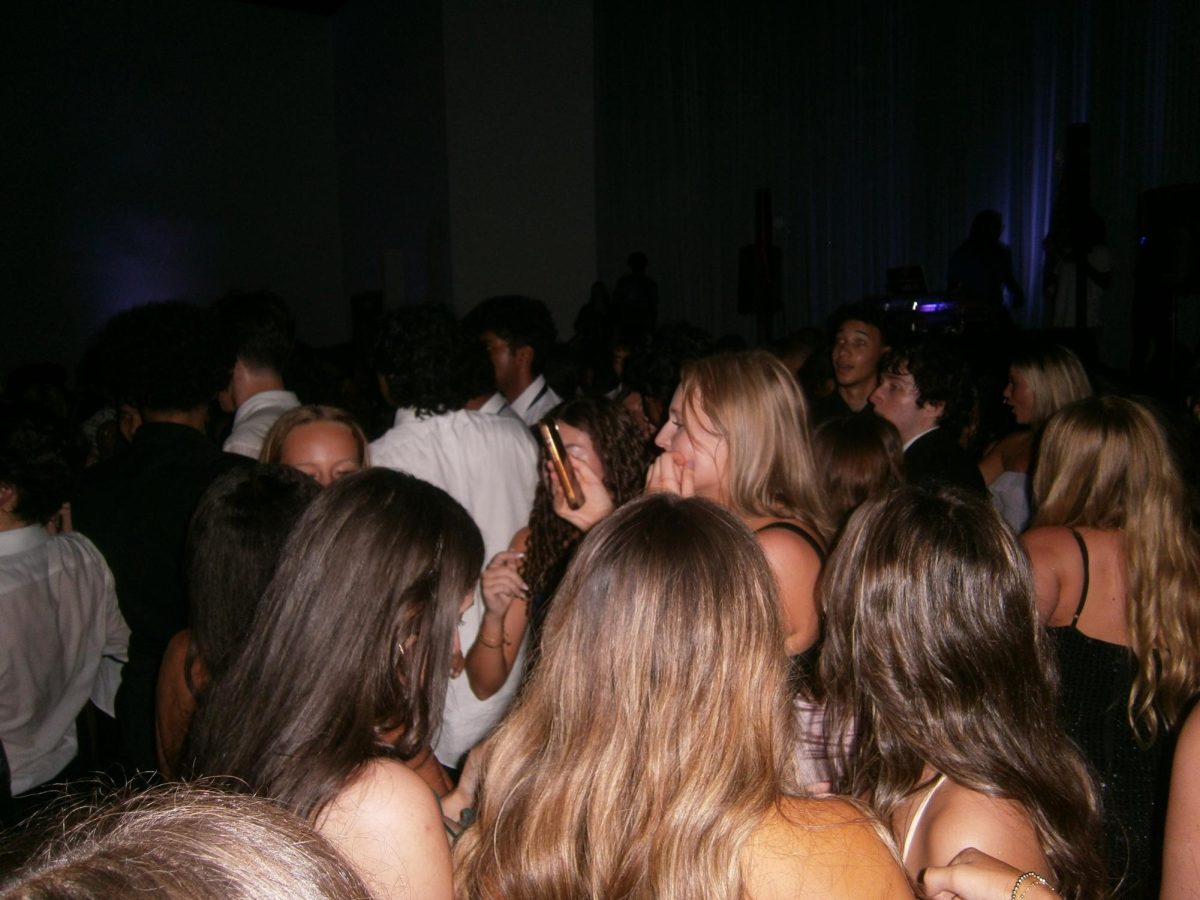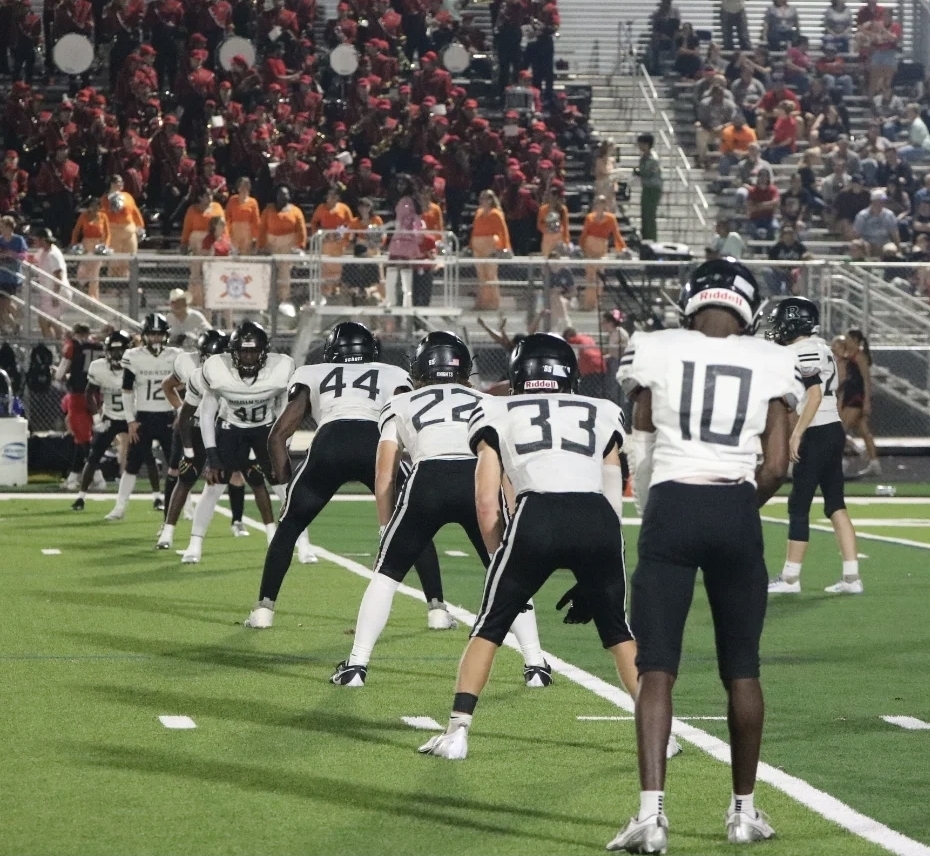With great power comes the need for celebrities to shut up
Celebrities need to keep their complaints off of social media
Photo @ddlovato
A screenshot of Demi Lovato’s original post on her instagram story criticizing the dietary treats at a Los Angeles frozen yogurt shop.
May 12, 2021
Although way too many Spider-Man remakes have been produced by Hollywood, there’s one concept from them that is ever-lasting: with great power comes great responsibility. The all-too-common trend of doxxing shows that celebrities need to be reminded of that fact.
Doxxing is the act of posting someone else’s private information online without their explicit permission, almost always with negative intent. For the average person, doxxing occurs by posting someone’s address or phone number on Twitter or another social media. But when celebrities do it, more often it’s posting about a restaurant they’ve gone to or a worker they just interacted with. It’d be fine for anyone else complaining, but their millions of followers lead to unwelcome, widespread ridicule.
Take Demi Lovato, for instance. Recently, she visited a frozen yogurt shop in Los Angeles, and was offended by the dietary treats in the front being advertised as “guilt-free,” saying that they promoted a culture of eating disorders. That claim isn’t problematic in itself—I actually agree with it—but this issue is she @ed the shop on her social media and continuously trashed it on her Instagram story. As of April 30, Lovato has 102 million followers on Instagram; the Bigg Chill Frozen Yogurt has 49.3 thousand. The power imbalance there is obvious and puts the store and people’s livelihoods in danger all because one person was irresponsible and upset.
Quite frankly, situations like these are an abuse of power. Celebrity voices have been used for ages for anything from endorsements for products they definitely don’t use to encouragements to vote that result in a skyrocketing of voter registrations. When you have a following, you need to be careful with how you use it so that you don’t end up playing God.
Lovato isn’t the only example of this trend. In 2019, an author shamed a Metro worker in-uniform for eating on the train, citing that they didn’t think people were supposed to eat on the train. The company’s Twitter responded to the tweet by confirming they’d put it in the worker’s report, so not only did that author embarrass the worker but she also potentially endangered her job.
This also shows how distanced celebrities are from the rest of society, aka people who don’t have their privilege. The treats that Lovato was criticizing at the frozen yogurt shop were meant for celiac and diabetic people who need modifications. Lovato can just go to a different restaurant and not complain about it online, while the people who need those treats have limited options. Moreover, independent shops and workers can’t take a hit in their paycheck like a multimillionaire celebrity can. They’re not just posting on social media, they’re damaging someone’s income.
Admittedly, for all that I tend to dislike them, celebrities don’t stop being human just because they’re famous. The right to complain about a shop or a bad going out experience doesn’t leave when their followers hit the one million mark, but who listens to what they’re saying does dramatically increase. But my friends and I could complain about a store all we want on our social media and the only repercussion would be people unfollowing us because it’s annoying—when celebrities do it they hurt people.
Thankfully, Bigg Chill Frozen Yogurt is still going strong, with them even joking about the incident on their Instagram story. But the lack of consequences from misuse of celebrity power is the exception, not the rule. If their weight continues to be thrown around, then someone is bound to get hurt.











